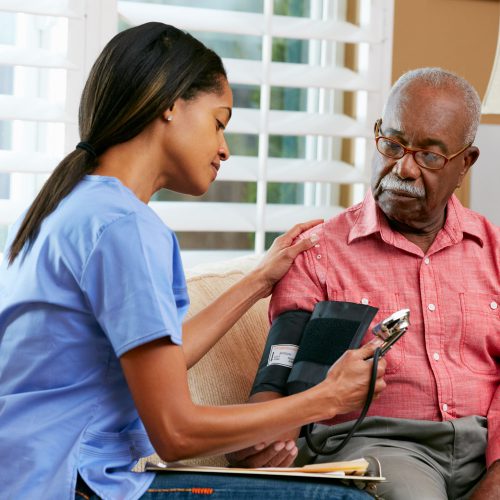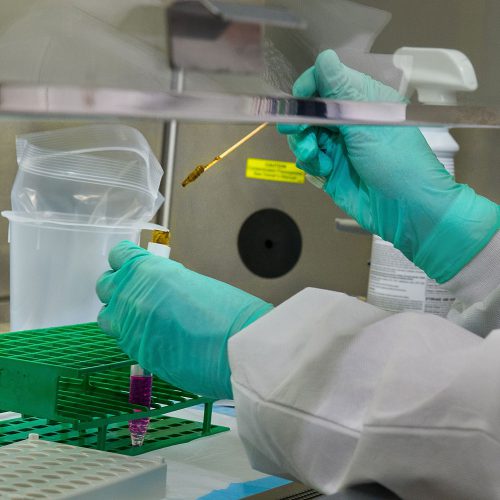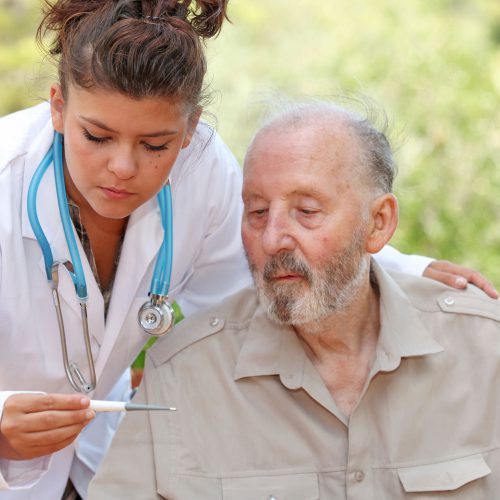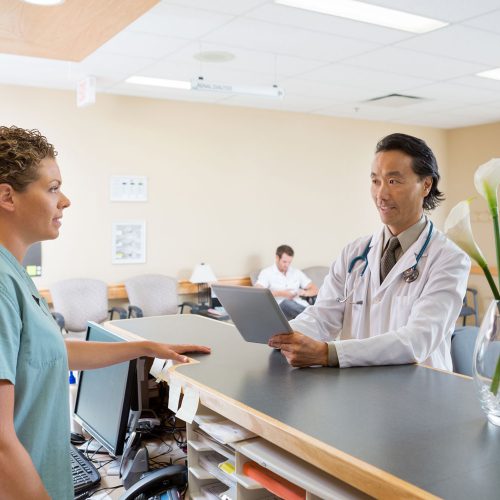
Health Care Vocational Aide Certified
The Home Healthcare Vocational Aide, Certified program’s mission is to provide post-secondary educational vocational training to individuals who wish to become gainfully employed in the field of home health care. The graduate will be able to perform tasks such as changing occupied and unoccupied beds, homemaking services, elder care, infection control, bathing, female/male perineal care, routine oral hygiene, denture care, applying a transfer or gait belt, positioning bedridden clients, wheelchair transfers, dressing/undressing clients, range of motion exercises, assisting clients with the use of mobility aids (e.g. crutches, walkers, and canes), using bed pans/portable commodes, and taking and recording vital signs. An ATC Home Health Care Vocational Aide student will also acquire skills that will assist them in performing a variety of duties that may be assigned to them, under the supervision of a doctor or nurse, including measuring blood pressure or pulse, measuring weight and height, caring for a patient with a urinary catheter, and assisting with finger stick blood sugar tests. The graduates will also be educated in how to work with clients who are terminally ill, or suffering from dementia and Alzheimer’s.
Course Subjects
Module: Introduction to the Aide, Agency Role and Patient Rights
Course topics: The course offers students an introduction to types of home care workers, home health care agencies, and the various settings in which care for patients can be delivered. It goes on to further explore the diversity of clients, their circumstances, and variations in conditions requiring care.
Module: Interpretation of Medical and Social Needs of People Being Served
Course topics: Students will learn the fundamental skills of good interpersonal skills to prepare them for success when working with clients and other medical staff. They will learn about barriers that will prevent the positive flow of communication and how to handle those situations. Effective documentation and gathering feedback for well-rounded plans of care will also be covered in this unit. Social needs of elderly home bound clients will be explored.
Module: Personal Care Services
Course topics: Procedures for bathing, oral hygiene, perineal care and grooming will be practiced in the skills lab. Training will cover the importance of dermal integrity. Students will have an overall understanding of pressure ulcers as one of the most common problems for bedridden or partially immobile patients, and prevention of ulcers from developing.
Module: Nutrition
Course topics:
Training will revolve around the importance of nutrition and its effect on health issues and the digestive system. Students are offered information that will equip them to help meet their client’s nutritional goals. Special diets, proper eating habits, water intake, food variety, caloric understanding and common problems of the digestive system are explored. Proper feeding techniques will be practiced hands on.
Module: Cleaning and Care Tasks in the Home
Course topics: Students will be prepared with the knowledge necessary to understand and manage household duties when taking care of clients at home. Household tasks such as laundry, maintenance of the kitchen, bathroom and common areas will be discussed. Cleaning safety tips for proper maintenance of clean home environment will be covered. Procedures such as changing an occupied and unoccupied bed will be carried out as well.
Module: CPR Certification
Course topics: This prepares students with the knowledge to understand and perform basic life support for adults, children and infants. On completion of the course the student will be able to provide basic life support for adults, children and infants, provide hands-only CPR, know the different levels of CPR, use a defibrillator and provide relief of chocking. Certification is provided by the American Heart Association.
Module: Infection Control
Course topics: The course will cover the fundamentals of infection control. It will teach students about topics such as the infection cycle, infectious diseases and controlling the spread of disease. Principles of handwashing, gloving and personal protective equipment will be covered in the lab.
Module: Safety and Emergency Services, Communication Skills, Promotion of Independence
Course topics: This course is designed to introduce the basic skills necessary to be successful in emergency situations. They will learn how to prevent accidents and evaluate falls and accidents. They will learn the types of medical emergencies and how to address them. They will practice communication skills during emergencies and other stressful situations. They will also learn skills in promoting independence with clients who are capable but resistant.
Module: Procedures Skill Testing
Course topics: Students will be in the Lab for most of this module, demonstrating their skills in handwashing, vital signs, dermal care, perineal care, routine hygiene, changing beds, assisting clients with transfers to toilets/commodes, caring for incontinence issues and body mechanics. There are 36 procedures to demonstrate during this module.
Clinical Training (Externship)
Course topics: This training will include training/instruction/evaluation by clinical staff and ATC’s program director. It will incorporate the following subjects: Introduction to Aide and Agency Role, Interpretation of medical and social needs of people being served, Personal Care Services, Nutrition, and Cleaning and care tasks in the home.


